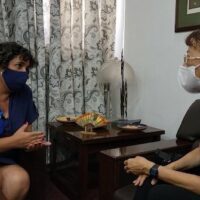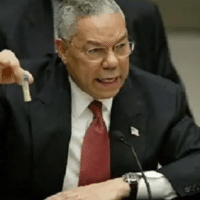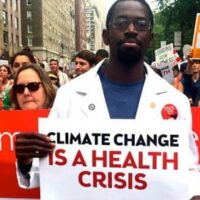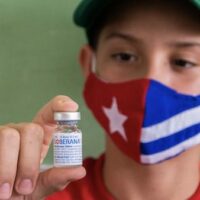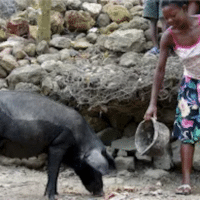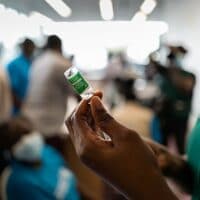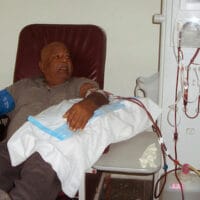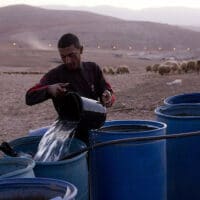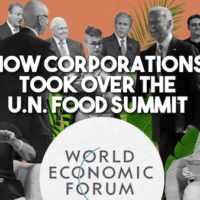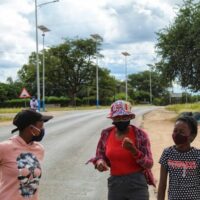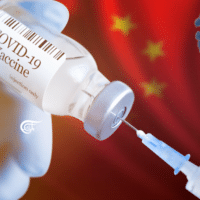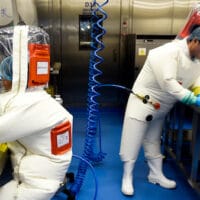-
Eyewitness report: Cuba’s scientists, medical workers advance fight vs. COVID
After a serious rise in Cuba of illnesses and deaths from COVID-19 during the summer, there are encouraging developments with a steady recovery and downward curve in illnesses and deaths.
-
Former U.S. State Secretary Powell dies of COVID-19 complications
In Feb. 2003, he claimed Iraq had weapons of mass destruction. The war against this nation began six weeks later. In 2005, a official report acknowledged his claim was “dead wrong.”
-
Why do bosses keep trying to kill us?
Wittenoom is an abandoned town in the desert north of Perth. Once, it had a population of almost 1,000, making it the biggest town in the Pilbara. Now, it’s been removed from maps and cut off from all essential services, to stop people from visiting.
-
‘Climate change is the single biggest health threat facing humanity’
World Health Organization urges ‘rapid and ambitious action to halt and reverse the climate crisis’.
-
Cuba reaches milestone with 60% of its population being fully vaccinated
According to the Cuban Public Health Ministry, as of October 12, 6,500,743 Cubans have been fully vaccinated against COVID-19 with its own vaccines. The figure represents 58.1% of the country’s entire population.
-
The curious case of Haitian pigs and Canadian imperialism
Pigs and Canadian imperialism. Most people would have difficulty understanding the connection. But for many Haitians the relationship is a historical memory.
-
Better late than never, but act now
The world should now be more aware of likely COVID-19 devastation unless urgently checked. Last week, the World Health Organization (WHO) announced an US$8 billion plan to quickly vaccinate many more people to expedite ending the pandemic.
-
A call to look beyond prescription opioid supply-side restrictions and include health equity when predicting opioid policy effectiveness
We read with interest the study by Rao and colleagues on opioid policy effectiveness, which extends their previous modeling efforts to predict opioid-related overdose, life-years, and QALYs. This work presents a useful framework from which to investigate policy effectiveness.
-
U.S. Covid death toll hits 700,000: A massacre by the capitalist system
The United States marked a grim milestone Oct. 1 as the 700,000th death from COVID-19 was officially registered. Since January of 2020 the United States has also counted over 43 million cases, the most of any country on the planet for both deaths and infections.
-
“Race Norming” and Health Care Jim Crow
The term “race norming ” ought to be immediately suspected as having a nefarious intent. Anything referred to as norming in a racist society invariably ends with Black people getting the short end of the stick.
-
A World without hunger: The Fortieth Newsletter (2021)
There is nothing more obscene than the existence of hunger, the terrible indignity of working hard but being without the means for sustenance.
-
At this niche clinic, no stares, smirks, or stigma
How China’s first gender dysphoria clinic is slowly but surely transforming the transgender community’s access to healthcare.
-
The brutality of denying water to Palestinians in the South Hebron Hills
For the past 15 years, I have witnessed how the Israeli army cuts Palestinian communities from accessing water in order to expel them and take their land.
-
Rich countries prolong the pandemic: what Biden must do
Most rich countries have opposed most developing countries’ request to temporarily suspend World Trade Organization (WTO) intellectual property (IP) rules to more quickly contain the COVID-19 pandemic. Expectations were high as Biden had supported a patent waiver, albeit only for vaccines.
-
How big corporations and Bill Gates took over the UN food Summit
Large corporations and the Bill & Melinda Gates Foundation took over the United Nations Food Systems Summit, abandoning small farmers on behalf of Big Ag companies, endangering food sovereignty.
-
New York Times advises China on COVID-19: abandon success, try failure
Shielding the Western elite from justified rage.
-
Big Pharma and vaccine apartheid
The webinar on ‘Vaccine Imperialism: Scientific Knowledge, Capacity and Production in Africa’ which took place on 5 August 5, 2021, was organized by the Review of African Political Economy (ROAPE) in partnership with the Third World Network-Africa (TWN-Africa).
-
China and the power of healing
COVID-19 is the major public health emergency witnessed by human history in recent times. Covid has put humanity to a new test and shaped our World from individual new norms to a new world order.
-
How U.S. media misrepresent the Wuhan Institute of Virology’s laboratories and safety protocols
Even if we were to accept all the accusations against the WIV regarding their alleged subpar safety standards, none of it has any relevance to the COVID-19 pandemic unless it can be shown the WIV possessed SARS-CoV-2 in its lab before the outbreak, and there is no evidence of that.
-
Dossier 44: Black Community Programmes: The practical manifestation of Black Consciousness philosophy
Tricontinental: Institute for Social Research created the collages in this dossier based on archival photographs, inserting silhouettes of people and activities and breathing life back into the spaces of the Black Community Programmes of decades past.

